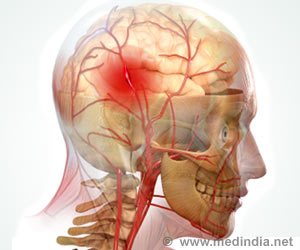Strokes, seizures, traumatic brain injury and schizophrenia lead to persistent, widespread acidity around neurons in the brain.

TOP INSIGHT
Finding ways to prevent acidification or the reactivation of N3A receptors may prevent brain damage from strokes or seizures.
"When the N3A receptors were exposed to acidic conditions they reactivate, causing neurons to become more sensitive to the neurotransmitter glutamate, which can, under certain circumstances, kill them," said lead author Kirstie A. Cummings, doctoral candidate.
Also, N3A proteins were found to be more abundant in brains of people with schizophrenia -- a disease associated with high acidity in the brain, causes brains to shrink. Finding ways to prevent acidification or the reactivation of N3A receptors may prevent brain damage from strokes or seizures, the researchers suggested.
In addition, the researchers have identified the site on the receptor where acidity acts to reactivate these receptors, a different location from the site where acidity acts to inhibit all other NMDA receptors. "This site is new and unique and thus can be used to make drugs that are very specific to the N3A receptor," Popescu said.
Source-IANS
 MEDINDIA
MEDINDIA




 Email
Email










